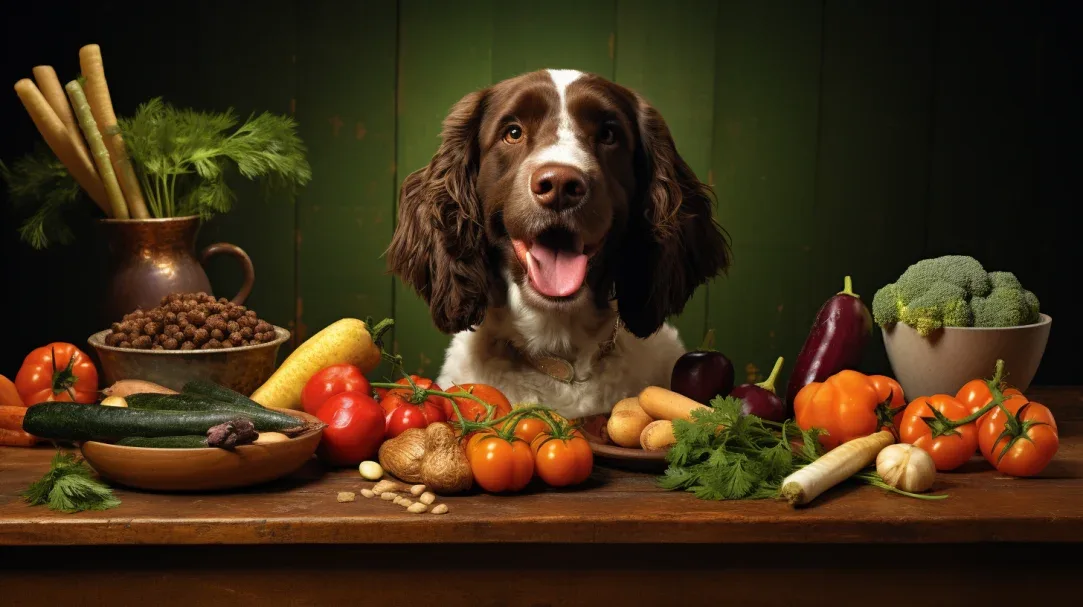Have you ever wondered if your furry friend can safely indulge in the deliciousness of buckwheat? Can dogs eat buckwheat? Well, wonder no more! In this article, we will unveil whether dogs can safely enjoy buckwheat.
Get ready to discover the nutritional value, health benefits, and potential risks associated with incorporating buckwheat into your dog’s diet. With our knowledgeable and authoritative insights, you’ll have all the information you need to make an informed decision for your pup.
So, let’s dive in and uncover the truth about dogs and buckwheat!
Key Takeaways
- Buckwheat is generally safe for dogs to eat in moderate amounts. It is a nutritious grain-like seed often used in human diets and sometimes included in commercial dog foods.
- Buckwheat is highly nutritious and beneficial for dogs, as it is rich in fiber, protein, magnesium, and manganese.
- Buckwheat is safe for dogs with sensitive stomachs or allergies, as it is gluten-free.
- Introducing buckwheat gradually and monitoring the dog’s reaction is essential to ensure it is well-tolerated.
- Buckwheat can be incorporated into a dog’s diet through treats, meals, or as a substitute for grains in homemade dog food.
What is Buckwheat?
Buckwheat is a plant known for its nutritional benefits and is safe for dogs. It is a rich source of dietary fiber, which promotes colon health and helps regulate blood sugar levels. Buckwheat also provides essential amino acids, making it a good source of protein for dogs.
Buckwheat can be incorporated into a dog’s diet – from buckwheat flour and groats to buckwheat noodles and sprouts. However, it’s important to note that dogs with food allergies may react adversely to buckwheat. If your dog has known food allergies, consult your veterinarian before introducing buckwheat into their diet.
Feeding buckwheat to dogs should be cooked thoroughly to ensure easy digestion. Raw buckwheat can be difficult for dogs to digest and may cause gastrointestinal distress.
Can Dogs Eat Buckwheat?
Buckwheat can be a safe and nutritious addition to a dog’s diet, but there are a few things to remember. Dogs with food allergies may react adversely to buckwheat, so it’s essential to consult a veterinarian before introducing it to their diet. Feeding buckwheat to dogs should be cooked thoroughly to aid digestion. Raw buckwheat may be difficult for dogs to digest and can cause gastrointestinal distress.
Buckwheat is a good source of dietary fiber and protein, making it a healthy option for dogs when appropriately cooked. However, it should not replace balanced meals and should only be given as an occasional treat or addition to their regular food. Always monitor your dog for adverse reactions and seek veterinary care if needed. In summary, dogs can enjoy buckwheat in moderation, but it’s essential to consider any allergies and cook it thoroughly for their benefit.
Nutritional Benefits of Buckwheat for Dogs
Buckwheat is a nutritious grain that can be a healthy addition to your furry friend’s diet. It is important to note that dogs can safely enjoy buckwheat in moderation as part of a balanced diet. Here are some nutritional benefits of buckwheat for dogs:
1. Fiber: Buckwheat is an excellent source of dietary fiber, both soluble and insoluble. Fiber promotes healthy digestion, regulates bowel movements, and can aid in preventing constipation. It also helps in maintaining colon health.
2. Protein: Buckwheat is a good source of plant-based protein. Protein is essential for your dog’s overall health, providing amino acids necessary for muscle development and repair and supporting the immune system.
3. Nutrient-rich: Buckwheat contains essential nutrients like magnesium, copper, manganese, phosphorus, and B vitamins. These nutrients support optimal body function, promote healthy bones, and contribute to maintaining a shiny coat.
4. Heart health: Buckwheat is known to have heart-healthy benefits. It contains antioxidants that can help reduce inflammation, promote healthy blood pressure, and lower the risk of heart disease. Including buckwheat in your dog’s diet can support their cardiovascular health.
5. Allergy-friendly: Buckwheat is a grain-free option for dogs with allergies or food sensitivities. It is gluten-free and does not commonly trigger canine allergic reactions, making it a safe alternative to common grains like wheat.
When introducing buckwheat to your dog’s diet, start with small amounts and monitor for potential adverse reactions. Some dogs may experience gastrointestinal distress or skin rashes if they are allergic to buckwheat.
Health Benefits of Incorporating Buckwheat in Your Dog’s Diet

Incorporating buckwheat into your dog’s diet can provide many health benefits. One of the key benefits is the improvement it can bring to your dog’s skin and coat. Buckwheat contains essential nutrients like zinc, biotin, and omega-3 fatty acids, which promote healthy skin and a shiny coat. These nutrients help maintain the skin’s moisture, reduce inflammation, and prevent dryness and itchiness.
Additionally, buckwheat is rich in fiber, crucial in promoting digestive health in dogs. The high fiber content aids in regulating bowel movements, preventing constipation, and maintaining a healthy gut. This can lead to better digestion, nutrient absorption, and overall gastrointestinal well-being for your furry friend.
Factors to Consider Before Feeding Buckwheat to Your Dog

Before feeding buckwheat to your dog, it’s essential to consider a few key factors.
- First and foremost, consult with your veterinarian to ensure that buckwheat is safe for your dog and won’t interfere with any existing health conditions or medication your dog may be on.
- Additionally, gradually introducing buckwheat to your dog’s meals is crucial. Start by adding small amounts of cooked buckwheat to their regular food and monitor their reaction. Watch out for signs of digestive upset or allergies, such as vomiting, diarrhea, or itching.
It’s also important to note that while buckwheat is generally safe for dogs, it shouldn’t replace their primary source of nutrition.
How to Introduce Buckwheat to Your Dog’s Meals
Incorporate small amounts into their regular food to introduce buckwheat to your dog’s meals. Begin with a teaspoon or two and gradually increase the serving size. This will allow your dog’s digestive system to adjust to the new ingredient and minimize the risk of any adverse reactions.
Additionally, watch for potential health benefits such as improved digestion, increased energy levels, and a healthier coat.
Safe Serving Sizes
You can gradually introduce buckwheat into your dog’s meals to ensure safe serving sizes. It’s important to remember that dogs have different dietary needs than humans, so taking the necessary precautions when incorporating new foods into their diet is crucial.
Start by preparing buckwheat using safe methods, such as boiling or steaming, to make it easily digestible for your furry friend. It’s also worth considering alternative grains, like quinoa or millet, which can provide similar nutritional benefits to buckwheat.
When introducing buckwheat into your dog’s meals, start with small amounts and monitor their reaction. If your dog shows any discomfort or digestive issues, consult your veterinarian to adjust the serving size accordingly.
Keeping serving sizes safe and appropriate for your dog’s needs will ensure they can enjoy the benefits of buckwheat without any adverse effects.
Potential Health Benefits
Have you considered the potential health benefits of introducing buckwheat to your dog’s meals? Buckwheat isn’t only safe for dogs but offers several advantages when added to their diet. Here are three reasons why you should consider incorporating buckwheat into your furry friend’s meals:
- Improved Digestive Health: Buckwheat is rich in dietary fiber, which aids in digestion and helps regulate bowel movements. This can be particularly beneficial for dogs with sensitive stomachs or those prone to digestive issues.
- Increased Energy Levels: Buckwheat is an excellent source of complex carbohydrates, providing a steady release of energy throughout the day. This can help keep your dog active and energized during playtime and exercise.
- Enhanced Nutritional Profile: Buckwheat contains essential vitamins and minerals, including iron, magnesium, and B. These nutrients contribute to overall health and support a robust immune system.
While buckwheat has benefits, it’s essential to be aware of potential drawbacks, such as allergies or intolerances. If your dog has any known grain allergies, it’s best to consult a veterinarian for alternative grain options.
Potential Risks and Allergies Associated With Buckwheat Consumption in Dogs
Your dog’s health and well-being should always be a top priority when considering their diet. Understanding the potential risks and allergies associated with buckwheat consumption is essential.
While buckwheat is generally safe for dogs, there are a few precautions to remember. Some dogs may have allergies to buckwheat, which can manifest as itching, skin rashes, or digestive issues. If you suspect your dog may be allergic, it’s essential to consult with your veterinarian for a proper diagnosis.
Additionally, gradually introduce new foods to monitor your dog’s reaction and prevent any adverse effects. You can safely incorporate buckwheat into your dog’s diet by being aware of the potential risks and taking necessary precautions.
Now, let’s explore some recommended buckwheat recipes for dogs.
Recommended Buckwheat Recipes for Dogs

Now, look at some delicious buckwheat recipes your furry friend can enjoy! Incorporating buckwheat into your dog’s diet can be a healthy and tasty addition.
Here are three homemade buckwheat recipes that will make your pup’s tail wag with delight:
- Buckwheat Dog Treats: These crunchy treats contain nutritious ingredients like buckwheat flour, peanut butter, and banana. Your dog will love these homemade goodies’ satisfying texture and irresistible flavor.
- Buckwheat and Chicken Stew: This hearty stew combines the goodness of buckwheat groats with lean chicken and various vegetables. It’s a wholesome and balanced meal that will nourish your dog.
- Buckwheat Pumpkin Muffins: These moist and fluffy muffins are a perfect treat for your dog. Made with buckwheat flour, pumpkin puree, and a touch of cinnamon, they aren’t only delicious but provide essential nutrients for your furry friend.
Frequently Asked Questions
Can dogs consume foods made with buckwheat flour?
Yes, dogs can consume foods made with buckwheat flour in moderation. Buckwheat flour is a gluten-free alternative that may suit dogs’ sensitivities to wheat. However, it’s essential to ensure that the other ingredients in the food are safe for dogs and that any seasonings or additives are not harmful.
Is buckwheat a suitable addition to a dog’s diet?
Buckwheat can be a suitable addition to a dog’s diet when prepared plain and in moderation. It’s a source of fiber and nutrients, but it should be cooked and served without added salt, sugar, or seasonings. Always consult a veterinarian before significantly changing your dog’s diet.
Are buckwheat groats safe for dogs to eat?
Buckwheat groats can be safe for dogs to eat when cooked and served plain. They can provide a nutritious addition to a dog’s diet, but it’s crucial to ensure they are fully cooked and free from any seasonings or additives that may be harmful to dogs.
Can dogs enjoy dishes made with buckwheat noodles?
Dishes made with plain buckwheat noodles, without added sauces or seasonings, can be a safe and occasional dog treat. However, moderation is vital, as noodles should not be a primary source of nutrition for dogs.
Is it okay to feed dogs buckwheat pancakes?
Buckwheat pancakes can be safe for dogs when prepared plain, without added sugars, syrups, or toppings. Keep portions small and consider them an occasional treat rather than a regular part of your dog’s diet.
Can dogs eat cooked buckwheat without any issues?
Cooked plain buckwheat can generally be consumed by dogs without issues. It can provide a source of fiber and nutrients. However, it should be offered in moderation, not replace their primary dog food.
Is buckwheat honey safe for dogs to consume?
Buckwheat honey, like all types of honey, should be given to dogs in moderation. While it can have potential health benefits, it is calorie-dense and should not be overindulged. Always consult a veterinarian before giving honey to your dog, especially if they have any underlying health conditions.
Are there any concerns with giving dogs buckwheat pasta?
Buckwheat pasta can be safe for dogs when plain and cooked. However, avoiding pasta dishes with sauces, seasonings, or ingredients that may harm dogs is essential. Keep portions small and consider it an occasional treat.
Is it safe for dogs to consume raw buckwheat?
Raw buckwheat is not recommended for dogs. It is difficult for dogs to digest and may lead to gastrointestinal discomfort. It’s best to cook buckwheat before offering it to your dog.
Can dogs have roasted buckwheat as part of their diet?
Roasted buckwheat, like other forms of cooked buckwheat, can be safe for dogs when plain and free from added seasonings or ingredients that may be harmful. Moderation is vital when including roasted buckwheat in your dog’s diet.
Are there any risks associated with dogs eating uncooked buckwheat?
Uncooked buckwheat is not recommended for dogs due to its difficulty in digestion. It may cause gastrointestinal upset and discomfort. Always ensure that buckwheat is fully cooked before offering it to your dog.
Can dogs safely include buckwheat in their diet?
Dogs can safely include buckwheat in their diet when it is properly cooked and served plain, without added ingredients that may be harmful. As with any dietary changes, it’s advisable to consult with a veterinarian to ensure it fits your dog’s specific nutritional needs.
Conclusion
In conclusion, buckwheat can be a nutritious addition to your dog’s diet, offering various health benefits. However, it’s important to consider your dog’s needs and consult a veterinarian before introducing it.
While buckwheat allergies are rare, monitoring your dog for any adverse reactions is always wise.
You can explore delicious buckwheat recipes that delight your furry friend and contribute to their overall well-being with proper care and moderation.
So go ahead and let your dog enjoy the wholesome goodness of buckwheat!
Quick Paw Note: While we’re passionate about providing helpful pet nutrition content, it’s essential to remember that this info isn’t a substitute for professional veterinary advice. Always consult your vet for your pup’s specific dietary needs. We strive for accuracy, but paw-lease note that we can’t guarantee the complete reliability of all content. Stay pawsome! 🐾




